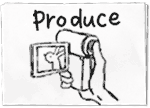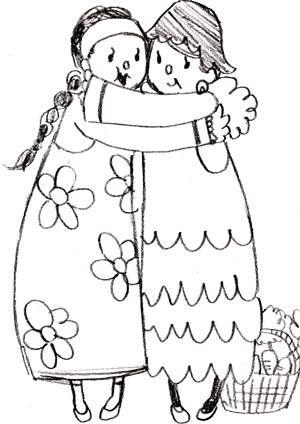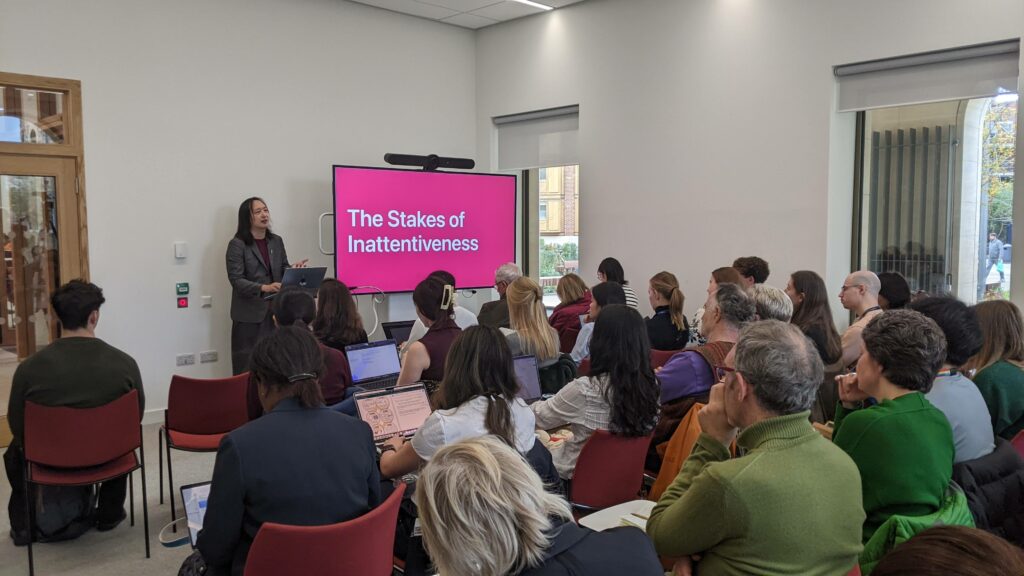#mainstreaming people are wilfully blind and alt people tend to be pessimistic, it’s a problem. Historically, real social change doesn’t arrive by waiting for collapse. It arrives because people are active, they build alternatives in advance, strong enough to bridge the mess when existing systems fail and lose legitimacy. This isn’t theory. It’s how change has always happened.
If you are interested in a better outcome, we need to remember, build first, collapse later is the lesson that we keep forgetting. You don’t wait for the crash, you prepare, are ready to catch people when it comes.
Projects like the #OMN are currently blocked because capitalism, especially after forty years of neoliberalism, has poisoned our idea of individualism. We’re trained to see ourselves as isolated actors rather than members of a society capable of collective care and collective power. This keeps us passive while the systems hollow out around us.
One of the biggest blocks to change is the belief that politics is something done to us, rather than by us. People blame politicians for everything – climate breakdown, cultural decay, economic precarity – while avoiding responsibility for the systems we participate in daily.
In the working alt paths, we build parallel systems to make change happen. Revolutions don’t begin with a dramatic break. They begin quietly, when people redirect time, energy, trust, and care into structures that actually work. Gradually, those structures grow. Eventually, the old ones hollow out and lose relevance.
But we are society. It starts and ends with us. Learning how to help your neighbours now – feeding people, housing people, sharing skills, organising locally – isn’t charity. It’s practice. It builds the muscles, myths, and traditions we’ll need when systems fail harder than they already are. And they will fail. The only uncertainty is how badly.
This can start anywhere – including with shared tech infrastructure like the #OMN. You don’t need permission, mass consensus. You, simply, need commitment, continuity, and care.
Over the last decade, #techchurn has produced mountains of #techshit. Both mainstream and “alternative” tech piles need composting if we want to grow a more humane world. From a grassroots perspective, many past alternatives – anarchist, ecological, socialist – did work imperfectly, until they were eaten, flattened, or professionalised by #NGO, #fashernista, and #deathcult dynamics.
Stepping away from the tech mess means composting it. It’s good that people try not to push pointless tech projects. And let’s be honest: most new tech projects are pointless. In the era of #climatechaos, we don’t have the luxury of pretending otherwise.
That’s already happening, unevenly and messily, especially across the #Fediverse. The real question isn’t whether parallel systems will emerge. The question is whether the balance will be humane, democratic, and resilient, or authoritarian and exclusionary.
To figure out what’s worth building, we need to do #4opens reviews and publish them. This isn’t gatekeeping – it’s collective responsibility. Let’s build a shared culture of useful tech, together. The task now is to reboot what worked, using federated #4opens tech, and then innovate forward from there. This is where #OMN and #indymediaback sit: not nostalgia, but composted continuity.
In the era of #climatechaos, too many people are on their knees worshipping the #deathcult. We need to call pointless things pointless – clearly, calmly, without fear. If that idea scares you, ask why. Fear is how obedience is maintained. #fashernistas, get off your knees. Use the #4opens as a shovel. There are piles of techshit that need composting.
Collapse won’t be clean or total. It’s unlikely we’ll see a single cinematic moment. What’s far more likely is a long series of crises: recessions, austerity, market “corrections”, institutional decay, shrinking legitimacy. Capitalism isn’t stable. It’s inherently extractive and unsustainable. Growth has been artificially inflated to concentrate wealth upward, while the real ecological, social, and psychological costs are pushed downward. The illusion of growth hides the reality of extraction.
Power won’t step aside politely, as legitimacy shrinks, power concentrates. Smaller and smaller groups cling to control through coercion, surveillance, and force. History shows that entrenched power has to be pushed over, not waited out. That doesn’t mean chaos. It means having something better ready.
All thinking is critique. If you aren’t looking at faults, you probably aren’t looking at the thing at all. Don’t be afraid of that. Gardening requires digging. Lift your head, your shovel. Dig, and plant.
Without parallel institutions, collapse just creates a vacuum. And vacuums get filled by the worst actors. What actually matters doesn’t appear magically after a crisis. Community, care, knowledge, trust, culture, and shared infrastructure are built slowly, beforehand, by people who show up consistently.
The #Fediverse is an accidental #openweb reboot – a product of #fashernista energy, messy and decentralised. Herding cats is hard, but it’s not a flaw. It’s the material we’re working with. One path forward is #OGB – grassroots, DIY producer governance – building shared norms and flows without hard centralisation.
This isn’t apocalypse fantasy, it’s continuity. Waiting for the system to fall is a losing strategy. Protesting without building is noise. Commentary without construction is theatre.
If you want change: build alongside, build underneath, build beyond. That isn’t extremism, it’s history.











